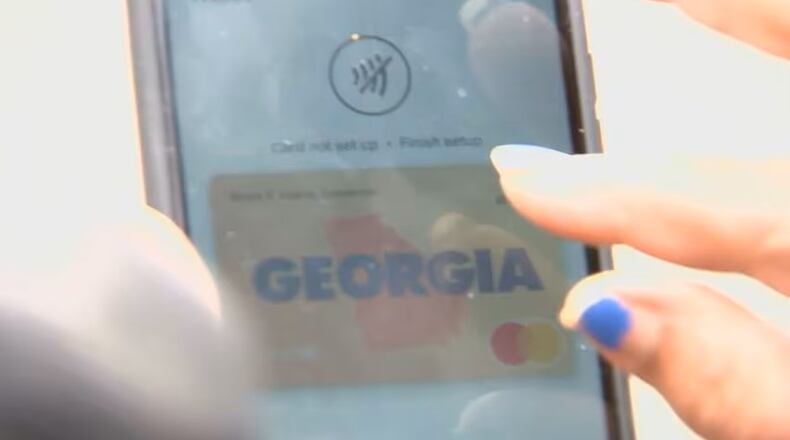Auditors said the Department of Human Services may have flouted a state law when it rushed to launch a federally funded cash assistance program for low-income Georgians shortly before Gov. Brian Kemp’s reelection in 2022.
According to a report from the Department of Audits and Accounts, the Kemp administration did not comply with state-approved process for soliciting bids for a $1.1 billion contract to distribute debit cards to Georgians who receive food stamps, Medicaid or welfare. Kemp used federal COVID-19 money to provide the cash assistance.
Georgia Democrats, citing the report, called for the state to launch an investigation. Senate Democratic Caucus Chairwoman Elena Parent of Atlanta said the optics make it look like Kemp was using the cards, which included his name, to give himself an edge as he was making his case for reelection that November.
“We need to determine whether state law regarding procurement was used here for Gov. Kemp’s personal political gain,” Parent said.
The Department of Administrative Services requires that agencies get its approval for large purchases and put the call for proposals on the Georgia Procurement Registry. Instead, the DHS and the governor’s Office of Planning and Budget directly solicited proposals from four companies and selected one within a week.
The audit notes that solicitation for the contract opened on Aug. 25, 2022, and the supplier was selected on Sept. 1, 2022. Election Day was Nov. 2, 2022.
The stated mission of the Department of Administrative Services is “ensuring reliable sources of goods and services at the lowest possible cost while promoting fair and open competition and small business opportunity to maximize government efficiency and compliance.” The audit said it can take six months to a year to select a company to receive a state contract.
While the process used in 2022 for this contract “allowed quicker delivery of funds” to low-income Georgians, the audit said, the number of bids was “potentially limited” by not posting the solicitation publicly.
“This prevented the state from receiving the benefits of an open, competitive solicitation,” the audit said.
State Rep. Tanya Miller, an Atlanta Democrat and former prosecutor, said the procurement process used by the Kemp administration should be investigated to see whether there was any criminal wrongdoing.
“The only thing that mattered when we were deciding to bring a case forward was the facts,” she said. “Not politics. Not who’s on the other side of the case. And definitely not whose political ambition might take a hit.”
The governor’s office referred questions to the DHS, which said federal rules don’t require a full procurement process when trying to get money to low-income Georgians as quickly as possible.
In responding to state auditors, the DHS said: “The agency agreed with the finding.”
The September 2022 rollout of the payments was quickly followed by a storm of social media posts about missing money. At the time, the DHS would not say how many people had reported their money as stolen. But the DHS said the “overwhelming majority” of the money got to the right Georgians.
Early last year, the Georgia Bureau of Investigation, the state attorney general, and the DHS said they were investigating alleged fraud tied to the cards. A GBI spokeswoman said the investigation is ongoing.
State Sen. Nan Orrock, a Democrat from Atlanta, said the state requires large agency purchases to be approved by the state Department of Administrative Services to keep corruption out of the government contracting process.
“This administration chose expediency over ethics, chose corruption over competence and chose patronage over people,” Orrock said. “It’s too steep a price to pay in order to get Brian Kemp reelected.”
Kemp went on a binge of spending federal COVID relief money in 2022 while he was running for reelection. By the time of the election he’d announced commitments for most of the $4.8 billion allocated to the state for everything from water and sewer and rural broadband projects to Grady Memorial Hospital funding and the debit cards.
Keep Reading
The Latest
Featured




